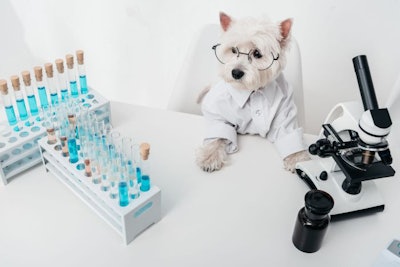
Baylor College of Medicine, Stonehaven Incubate AG and Diversigen Inc. have founded Anizome, a commercial therapeutic microbiome discovery platform dedicated to animal health and nutrition.
The collection of microorganisms that inhabit the bodies of humans and animals play an important role in maintaining host health. According to Anizome, over US$1 billion has been invested in human health microbiome start-ups, but the therapeutic potential of the microbiome in animals is yet to be unlocked.
“Recent discoveries are causing us to rethink the way we treat disease in animals,” said ANIZOME CEO Oliver Hardcastle. “The microbiome holds great promise, not only in reducing antibiotic use in livestock, but also in creating personalized solutions for our pets,”
Anizome is bringing together a team of experts to build on more than a decade of discovery in the microbiome. The company intends to develop diagnostic and therapeutic solutions capable of optimizing performance and preventing disease in animals. The partners behind the company include Baylor College of Medicine – a premier health sciences university in the United States and home to the Alkek Centre for Metagenomics and Microbiome Research, Diversigen – a leading human microbiome company, and Stonehaven Incubate, which specializes in accelerating innovation through new company formations in animal health. The joint venture bridges the gap between microbiome research and commercial development to deliver next-generation solutions for farm and companion animals.
“If you were to build this platform from scratch it would take several years, an investment of tens of millions of dollars and require significant expertise,” said Oliver. “The team we have at Anizome are world leaders in the microbiome sphere and will be developing a pipeline of candidates to tackle some of the most significant animal health challenges. By utilising the advancements made in human health, we will be able to improve animal welfare and productivity.”
Microbial-based solutions for pet nutrition
According to research from Lallemand Animal Nutrition, some GIT disorders, both acute and chronic, are well known to be associated with alterations of the microbial communities, but it is now increasingly documented that disorders beyond the GIT such as obesity, atopic dermatitis or central nervous disorders, can also be linked to changes in the microbiota. In this context, functional ingredients that are known to influence the microbiota composition such as prebiotics, probiotics and other nutritional interventions could represent alternative approaches to tackle these issues.
Lallemand reports that a recent study in dogs indicated 90 percent of dogs supplemented with the probiotic B. longum showed improvement in day-to-day anxious behavior including reduction of barking, jumping, spinning and pacing as compared to a placebo. In addition around 80 percent showed a decrease in heart rate and an increase in the heart rate variability, indicating a more positive response to anxiety. Such a preliminary study is very positive in showing a positive effect on both behavioral and physiological signs of anxiety in dogs.















